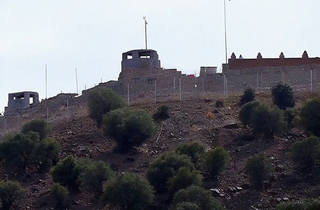Reacting to US comments expressing support for the territorial integrity of both nations within internationally recognized borders, the Islamic Emirate of Afghanistan, through its spokesperson Zabihullah Mujahid, firmly rejected any US intervention in the Durand Line issue. He emphasized that the matter solely concerns the Afghan and Pakistani people and reiterated Afghanistan's longstanding position of not recognizing the Durand Line as a legitimate border.
Pakistan's caretaker Prime Minister, Anwar ul-Haq Kakar, countered by asserting the Durand Line's status as an internationally recognized border, citing its acknowledgement by the UN and numerous countries. He dismissed Afghan concerns as an internal matter, highlighting the international consensus on the issue.
The US Department of State, through spokesperson Mathew Miller, took a more cautious approach, expressing support for the territorial integrity of both Afghanistan and Pakistan within their internationally recognized borders. This statement avoided explicitly mentioning the Durand Line, potentially reflecting the delicate nature of the issue and the desire to avoid taking sides in the dispute.
Deputy Foreign Minister of Afghanistan, Sher Mohammad Abbas Stanikzai, further emphasized Afghanistan's unwavering stance on the Durand Line. He criticized Pakistan's treatment of Afghan refugees and underscored Afghanistan's historical claim to territories beyond the Durand Line. He framed the line as an "imaginary line" imposed during British colonial rule, contrasting it with Pakistan's portrayal of a formal border.
The recent exchange of statements highlights the enduring lack of consensus on the Durand Line's status. While Pakistan seeks international validation of its stance, Afghanistan remains steadfast in its rejection. The US, caught in between, navigates the complex geopolitical landscape by offering a more general statement on territorial integrity. This unresolved dispute has the potential to continue straining relations between Afghanistan and Pakistan, with potential implications for regional stability. (ILKHA)



 Güncel
Güncel
 Dünya
Dünya
 Güncel
Güncel
 Dünya
Dünya
 Dünya
Dünya
 Güncel
Güncel
 Güncel
Güncel
 Dünya
Dünya
 Güncel
Güncel
 Güncel
Güncel





